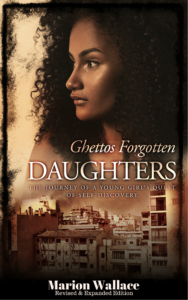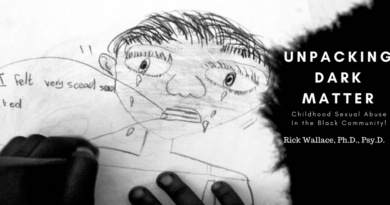THE NEW FACE OF DEPRESSION: THE “STRONG” BLACK WOMAN
THE NEW FACE OF DEPRESSION: THE “STRONG” BLACK WOMAN

“The notion of the strong Black woman arises from the bitter reality that Black women in America have historically carried a burden that extends beyond their natural capacity, but one they have had to carry nonetheless. There is no group of women that have been raped and violated at the rate of Black women. There is no race of women who have been abandoned to raise their progeny alone at the rate of Black women. Black women are consistently asked to be both, nurturer and provider, not only to their own children but to children fathered outside of the relationship by their mates and spouses. And even those who have live-in mates are expected to serve as the pillar of strength for a Black man who is often overwhelmed with his place in a racist world. The psychological and emotional weight that accompanies this reality cannot be adequately explained in such a short engagement, but the “Strong Black Woman” has limitations and while everything may appear to copasetic from an external examination, the internal workings of such stress can lead to mental fatigue or even chronic depression.
While the term “Strong Black Woman” has somewhat of a brilliant tone to it and it readily expresses the reality of so many women of color, Black woman are not magical creatures who lack feelings and exist absent of emotion. The internalization of negative emotions and mental anguish does not constitute the absence of such and this internalization comes at a steep price. The constant bombardment of negative cognitions masked by a smile and squared shoulders can easily spiral into clinical depression. It is important to understand that if you are a Black woman, seeking professional help does not diminish your strength, it actually solidifies it. ~ Rick Wallace, Ph.D., Psy.D., Founder & CEO of The Visionetics Institute)
There are countless myths and stigmas that surround depression in the Black community–particularly Black women. Myths surrounding the “strong Black women” can create needless pain and confusion, and can ultimately keep people from getting proper treatment. Strong Black women are supposed to 1.) have their own, 2.) not depend on anyone else for anything, 3.) be able to do others and for themselves without showing weakness, etc right? The following statements reflect some common misconceptions about African Americans and depression:
“If our people could make it through slavery, we can make it through anything.”
“When a black woman suffers from a mental disorder, the opinion is that she is weak. And weakness in black women is intolerable.”
“You should take your troubles to Jesus, not some stranger/psychiatrist.”
“You’re too strong of a Black woman to be feeling this way. Ge over yourself.”
The truth is, people with depression can’t just “snap out of it.”
Professor and blogger writer Monica Coleman, Ph.D writes:
“In many ways, I do think that there is a greater stigma among African American culture than among white cultures. I live in southern California, and many white people will freely reference “seeing a therapist” in normal conversation. Black people don’t do that. Seeing a therapist is generally seen as a sign of weakness or a lack of faith. There is still an active mythos of “the strong black woman,” who is supposed to be strong and present and capable for everyone in her family – and neglects her own needs. In the midst of a depressive episode, I had a friend say to me, “We are the descendants of those who survived the Middle Passage and slavery. Whatever you’re going through cannot be that bad.” I was so hurt and angry by that statement. No, depression isn’t human trafficking, genocide or slavery, but it is real death-threatening pain to me. And of course, there are those who did not survive those travesties. But that comment just made me feel small and selfish and far worse than before. It made me wish I had never said anything at all.”
Symptoms of clinical depression can happen at any time to any woman. Due to cultural backgrounds, depression may be exhibited differently among African Americans. If you suspect yourself—or someone you care about—needs could have clinical depression, take a look at the following list of symptoms. If you experience five or more for longer than two weeks, if you feel suicidal, or if the symptoms interfere with your daily routine, see your doctor:

Depressed woman sitting on couch
- A persistent sad, anxious or “empty” mood, or excessive crying
- Reduced appetite and weight loss or increased appetite and weight gain
- Persistent physical symptoms that do not respond to treatment, such as headaches, digestive disorders and chronic pain
- Irritability, restlessness
- Decreased energy, fatigue, feeling “slowed down”
- Feelings of guilt, worthlessness, helplessness, hopelessness, pessimism
- Sleeping too much or too little, early-morning waking
- Loss of interest or pleasure in activities, including sex
- Difficulty concentrating, remembering, or making decisions
- Thoughts of death or suicide, or suicide attempts
Remember, there’s no shame in seeking help. No man–or woman–is an island.






